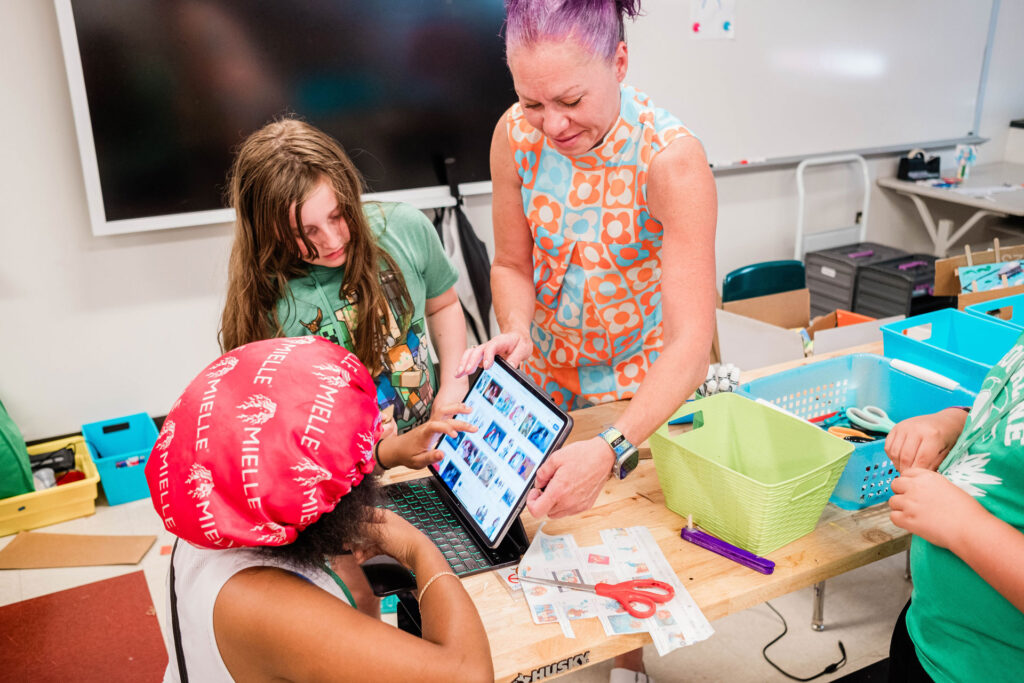You can hear the concern in Casey Mindlin’s voice when he shares the numbers: Fewer than 10 percent of kids in Pennsylvania take a computer science class, even though computer science jobs have become the number one source of all new wages in the U.S.
“Ninety-five percent of all American jobs by 2030 will require digital literacy, according to the World Economic Forum,” says Mindlin, executive director at the Pittsburgh-based nonprofit STEM Coding Lab. But too many kids in the Pittsburgh region lack that literacy.
Given the very limited pipeline of K-12 educators who are trained to teach computer science or digital literacy, STEM Coding Lab has been tackling this problem by teaching these skills to thousands of kids across Allegheny County. They currently offer more than 200 classes each week across 42 locations in schools, afterschool settings and aboard their “Wifi on Wheels Cyberbus.”
And yet, even as STEM Coding Lab has quadrupled in size over the past three years, many thousands of kids in the Pittsburgh region aren’t getting exposed to the knowledge they’ll need to thrive in the computer-driven world they’re inheriting.
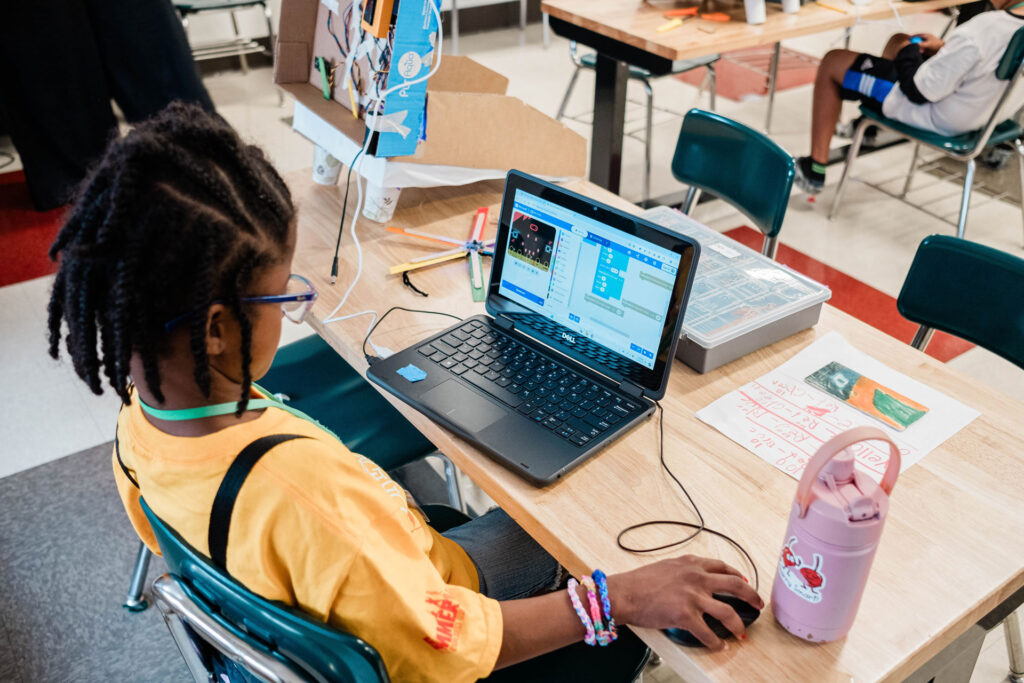
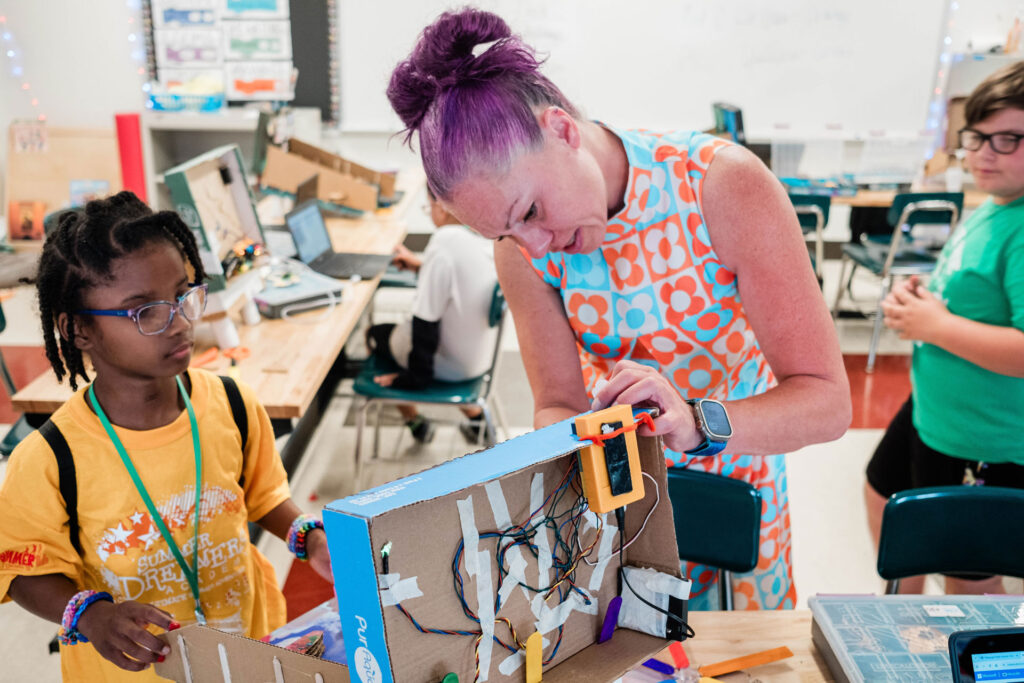
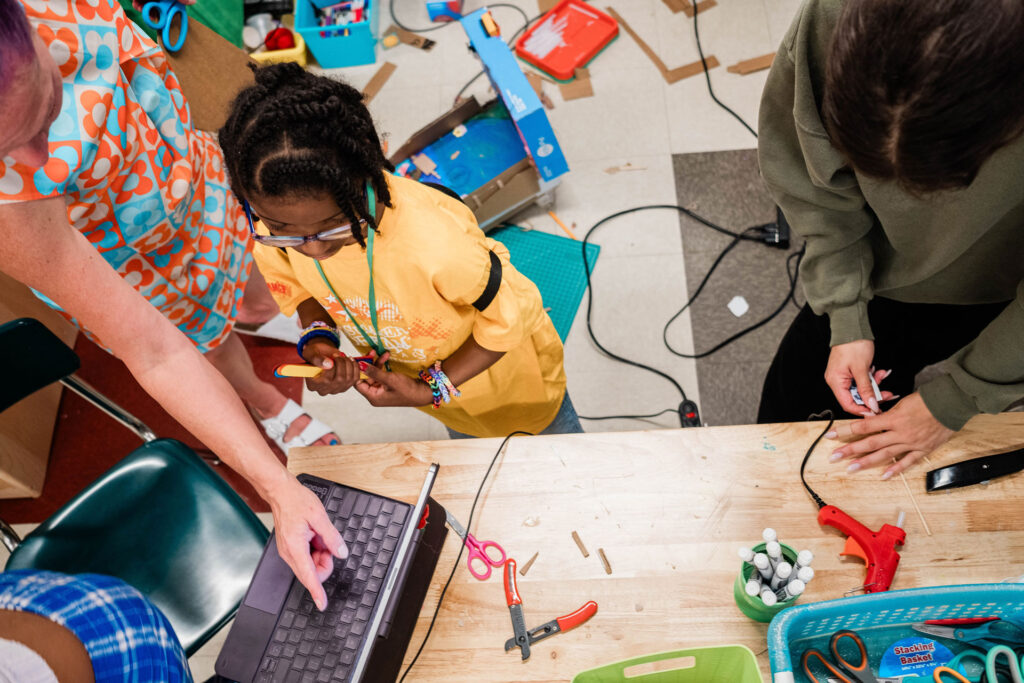
NON-TRADITIONAL SOLUTIONS FOR NON-TRADITIONAL EDUCATORS
This challenge led STEM Coding Lab to an innovative question: What would it look like if we empower nontraditional computer science educators, including parents, with the resources and direction necessary to bring that learning into their homes or wherever they engage with kids?
in their application for a 2023 Moonshot Grant from Remake Learning, Mindlin and his team described a future where all K-8 learners have access to a basic computer science education, in part because their parents and other caring adults are able to teach these principles (and learn the skills themselves, if they’re not already tech savvy) even if they don’t have a computer at home.
The team had found success teaching these skills in traditional learning spaces. So they felt ready to help parents “do it at home without a lot of the specialized equipment,” says Hannah Kirschner, development manager at STEM Coding Lab.
The idea of teaching computer science to kids can feel intimidating, Mindlin says, but many parents are eager to try. He cites data from code.org noting that more than 90% of parents in Pennsylvania want their kids to be learning computer science.
“If that means they have to do it themselves,” he says, “we want to give them the tools to do it. … and to simplify it, so that it’s easy for parents to share it with their kids, and then it might spark something in those kids that’s critical.”
Since earning their Moonshot Grant last fall, MIndlin and Kirschner have been collaborating with the nonprofit Civic Champs to create and share a series of “activity packs” that teach computer science principles with no tech required.
“We don’t want them in front of screens all day, even though we’re teaching digital literacy and computer science,” Mindlin says. “There are tons of ways to learn about computer science away from the screen.”
Some of these include:
- using origami-style paper folding or the idea of a morning routine to teach kids that an algorithm is actually just a step-by-step process (that happens to be written in computer code) for the purpose of accomplishing something
- teaching kids to create their own repeating dance routine to illustrate that a digital loop is simply lines repeating code that get plugged in over and over, like dance steps
These simple, easy-to-use activities help parents and kids discover computer science concepts.
“You can have kids complete these activities without the distraction of screens and they’re learning in a hands-on way that’s engaging to them and fun,” Kirschner says. “It’s something they want to do.”
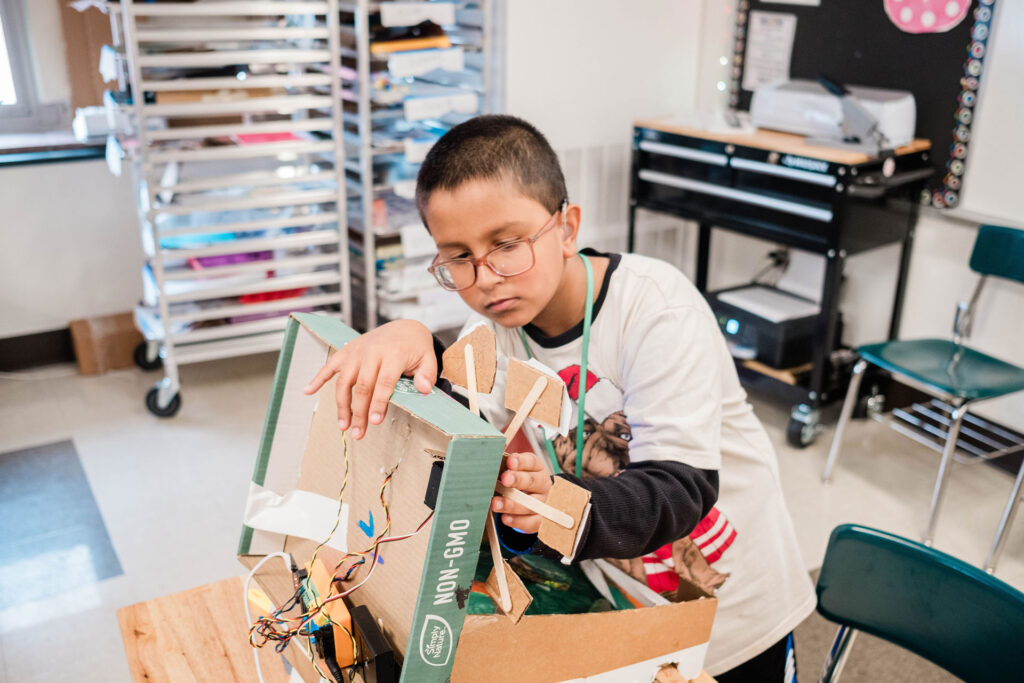
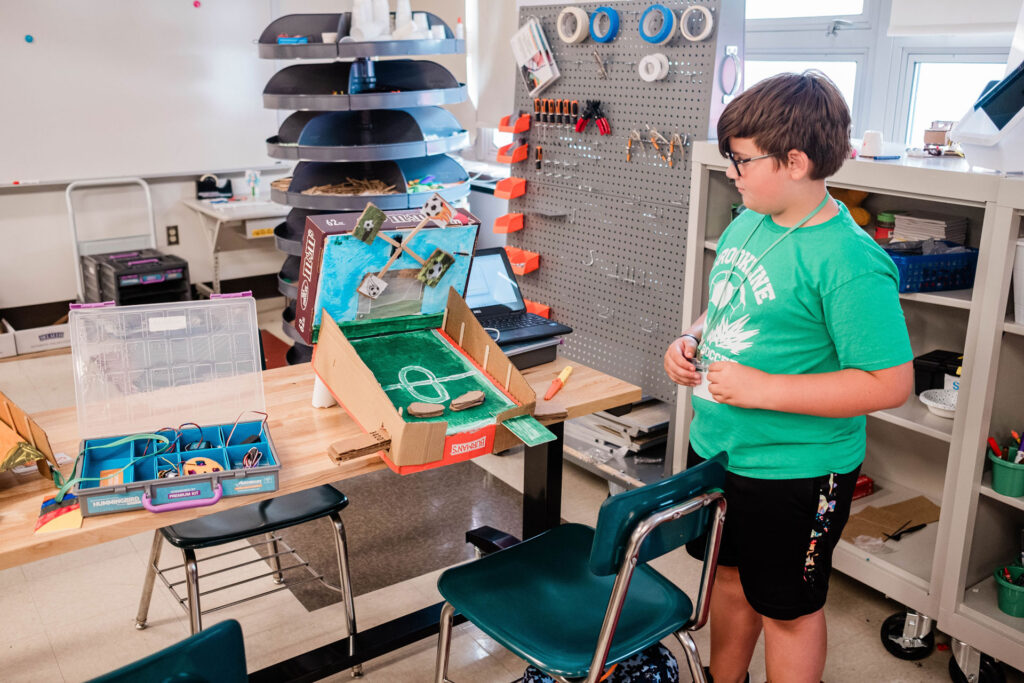
ROLLING OUT NEW RESOURCES
Eventually, the activity packs will be available online at the Civic Champs’ platform and the STEM Coding team will also hand them out in printed form at public events.
For now, the team is testing the design of the activity packs.
“We want to iterate as much as possible based on early experiences,” Mindlin says, “and then leave ourselves some room to be able to say to each other, ‘We were thinking about this wrong. We were thinking about this in a way that’s not reflective of the needs of our constituency.’”
They’re also grappling with “getting the parents or mentors to understand that this is something that they can do,” Kirschner says.
Although their team has spent a lot of time exploring these challenges, Kirschner and Mindlin also give credit to the parents who helped inspire their Moonshot idea. One was the parent of a student named Armani, who attended STEM Coding Lab’s CS Explorers summer camp to learn about career pathways in computer science.
At the camp, professionals from Pittsburgh’s tech community share stories about what they do and how they built their careers. Armani came home from camp each day fired up about the world of computer science, and his parent wanted to help fuel that excitement.
The parent wrote to STEM Coding Lab to share the good news and “was so effusive in his gratitude for that camp, because now he has this sort of inspiration to go do it with Armani,” Mindlin says.
Ideally, this Moonshot Grant project will allow thousands of Pittsburgh-area parents and kids to experience that same passion for computer science learning.
Authored by

Melissa Rayworth
Melissa Rayworth has spent two decades writing about the building blocks of modern life — how we design our homes, raise our children and care for elderly family members, how we interact with pop culture in our marketing-saturated society, and how our culture tackles (and avoids) issues of social justice and the environment.
